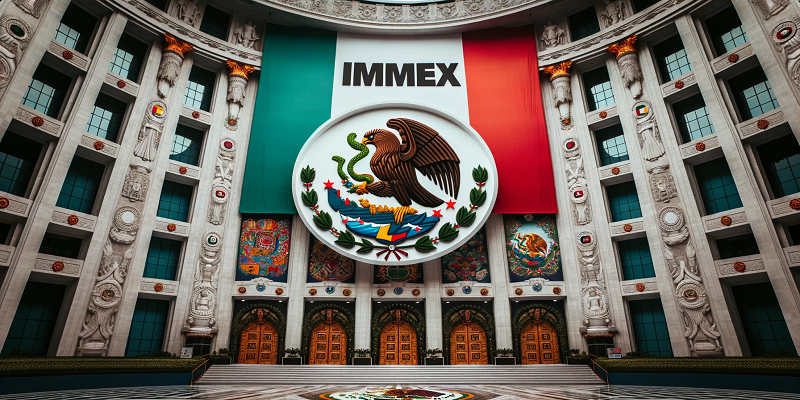Archives
Business, Feature, Freight News
Mexico Hikes Tariffs, Revises Import Program
[ January 3, 2025 // Gary G Burrows ]Mexican President Claudia Sheinbaum on Dec. 20 introduced measures to protect the Mexican textile and apparel industries while addressing compliance challenges under the country’s IMMEX program, according to a report from Sandler, Travis and Rosenberg PA.
“These changes represent a significant shift in Mexico’s trade and manufacturing landscape, will result in increased import costs for affected goods, and may require importers (particularly those fulfilling U.S. e-commerce orders from Mexico) to adjust their supply chains and manufacturing processes,” the international trade firm said. This action is also expected to impact companies that perform repairs or alterations on apparel or textile articles in Mexico or that use HTS subheadings 9802.00.80 or 9802.00.91 for assembly abroad of U.S. components, including the Mexico Special Regime program.
The decree increased to 35 percent, from 20 to 25 percent, the import duty on 121 apparel products and 17 made-up textiles of Chapters 63 and 94; and from 10 percent to 15 percent the import duty on 17 tariff headings related to textiles.
Mexico intends the increases to level the playing field for Mexican industries facing competition from lower-priced imports, particularly from countries without free trade agreements with Mexico, and they will remain in effect until April 23, 2026.
IMMEX stands for the Maquiladora, Manufacturing, and Export Services Industry; a program which first started in the mid-1960s to attract foreign direct investment into Mexico. The program allows for temporary importation of goods, machinery, and materials part of the manufacturing process without accruing the value-added tax of 16 percent, so long as they’re exported within the set timeframe.
Many companies that use warehouses in Mexico to fulfill e-commerce orders in the U.S. using de minimis entry procedures may use IMMEX to avoid paying duties on goods that are imported into Mexico and subsequently exported to the U.S.
However, under the new decree, certain finished products are excluded from temporary importation under IMMEX. These exclusions include finished clothing and textile articles classified under Harmonized Tariff Schedule Chapters 61, 62, and 63; quilts and comforters classified under HTS subheading 9404.40; and pillows, cushions, and other bedding materials classified under HTS subheading 9404.90.
It should be noted that certain specific goods classified under HTS subheadings 6117.90 (garment parts), 6217.90 (garment parts), 6302.91, 6302.93, and 6302.99 (certain household linens), as well as other textile products classified in HTS chapters 50-60 (generally yarns and fabrics), are not subject to this decree and are therefore still permitted for use under IMMEX.
Annex I of the IMMEX decree has been expanded to reflect the additional HTS headings and subheadings now prohibited from temporary import. In addition, 302 HTS items from Chapters 61, 62, and 63 have been removed from Annex II of the decree, which lists tariff lines that must comply with specific requirements to be eligible for temporary importation under IMMEX.
The main categories of goods impacted by the new tariffs and IMMEX restrictions are:
• Clothing (Chapters 61 and 62) – coats, suits, jackets, pants, dresses, shirts, and sweaters; and textile accessories such as gloves, belts, and ties.
• Made-Up Textile Articles (Chapter 63) – home goods (bed linens, blankets, pillowcases, curtains, towels, etc.); and tents, awnings, needlecrafts and rags.

Tags: IMMEX program








